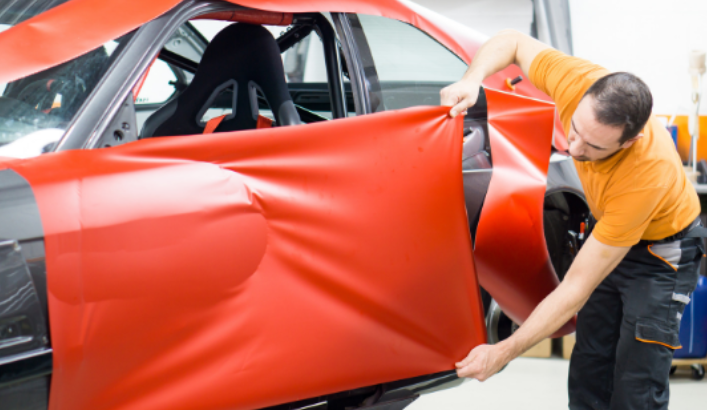

Does Cold Weather Affect Vehicle Wraps? Protecting Your Investment
When it comes to vehicle wraps, their durability and longevity are important factors to consider. Whether you’re a business owner utilizing vehicle wraps for advertising or a car enthusiast wanting to protect your vehicle’s aesthetics, understanding how weather conditions can impact your investment is crucial. In this blog, we’ll explore the effects of cold weather on vehicle wraps and provide valuable tips for maintaining their quality and appearance.
Vehicle wraps are typically made from vinyl material, which is known for its durability and flexibility. However, extreme cold temperatures can affect the performance of the vinyl and the adhesive used for installation.
a) Vinyl Material: Cold weather can cause vinyl to become more rigid, making it prone to cracking or shrinking. This can lead to the appearance of wrinkles or bubbles on the surface of the wrap. It’s essential to choose high-quality vinyl that is designed to withstand temperature fluctuations.
b) Adhesive Performance: The adhesive used to adhere the wrap to the vehicle may also be affected by cold weather. In extremely cold conditions, the adhesive can become less pliable, resulting in reduced adhesion and potential lifting or peeling of the wrap. Opting for a reliable adhesive specifically designed for cold weather applications can mitigate these risks.
To ensure the longevity of your vehicle wrap, it’s crucial to have it installed under optimal weather conditions. Cold weather installations require additional care and attention to detail.
a) Temperature Range: Ideally, the temperature during installation should be above 50°F (10°C). This allows the vinyl material to be more flexible and conform better to the contours of the vehicle. Installations performed in colder temperatures may require additional heat application to improve adhesion.
b) Controlled Environment: It’s advisable to perform the installation in a controlled environment, such as a temperature-regulated garage or a professional wrap shop. This helps maintain the ideal temperature and minimizes the risk of cold wind or moisture affecting the installation process.
Protecting your vehicle wrap during cold weather is vital to preserve its appearance and performance.
a) Gentle Washing: Regularly wash your vehicle wrap with a mild detergent and a soft cloth or sponge. Avoid using abrasive materials or high-pressure washers, as they can damage the wrap or compromise its adhesion.
b) Snow and Ice Removal: If your vehicle is exposed to snow or ice, take caution when removing them. Use a soft brush or snow broom to gently clear the snow, avoiding sharp or abrasive tools that could scratch the wrap.
c) Parking Considerations: Whenever possible, park your wrapped vehicle in a covered or sheltered area to protect it from extreme cold temperatures, snow, and ice accumulation.
While cold weather can have an impact on vehicle wraps, with proper considerations and maintenance, you can safeguard your investment. Selecting high-quality materials, ensuring proper installation, and implementing regular care and protection will help maintain the longevity and appearance of your vehicle wrap. If you have any concerns or questions about your specific vehicle wrap, consult with a professional wrap installer who can provide personalized advice based on your region’s climate.
Remember, a well-maintained and protected vehicle wrap will continue to showcase your brand or personal style, even in the harshest rainy conditions.

5 Powerful Ways Signage Empowers Self-Service Customers and Enhances Satisfaction

5 Surprising Ways Quality Signage Can Transform Your Business in

7 Emotional Triggers Your Signage Should Tap Into (If You

10 Crucial Things You Must Know About Signage Laws in
100% Original products that covered warranty by the vendor.
You have the right to return your orders within 30 days.
Your orders are shipped seamlessly between countries.
Your payments are secure with our private security network.